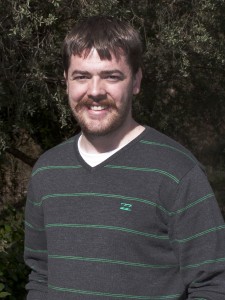 Asking student teachers where they want to teach when they graduate elicits some reasonably generic responses.
Asking student teachers where they want to teach when they graduate elicits some reasonably generic responses.
Some want to move to regional Victoria, others want to stick to the private school system. Very few of them want to move far from where they grew up or to areas that are desperate for teachers.
Like many of her colleagues, becoming a teacher has been a lifelong dream for Lauren Fisher.
‘For as long as I can remember I have wanted to be a teacher. I love working with children and the profession is so rewarding,’ she says.
Fisher chose to work in a community which is extremely different to what we, living in suburbia, are accustomed to.
After graduating from Deakin University last year, Fisher decided to move far away from her home town in rural western Victoria and head to an aboriginal community called Jilkminggan which has an estimated population of 200-300.
Jilkminggan is about 400 kilometres south of Darwin. Fisher lives in Mataranka, 30 kilometres west of Jilkminggan.
‘It is quite a popular tourist town as there are two hot springs here to swim in where there are no crocodiles,’ she says.
Every day Fisher and her fellow teachers take the bus to Jilkminggan and prepare for a day in a classroom that involves more than just teaching the national curriculum.
‘We have to deal with issues such as neglect, abuse, alcohol and drugs before we even begin the day of teaching,’ she says. ‘The school feeds the students at breakfast, recess and lunch and we also do simple things like brushing teeth in the classroom.’
All of the 100 students at the school are indigenous and while attendance is at times quite low, Fisher says they have been working hard to bring the kids back to school and the numbers are steadily rising.
The opportunity to teach in remote communities is offered by the Northern Territory government as part of the Remote Teaching Service.
The service attempts to lure teachers from all over the country with incentives. These include having living expenses met and receiving extra allowances for teaching in remote schools, on top of a normal teacher’s salary.
‘It is very difficult for the government to get teachers to work in these remote areas,’ she says. ‘Not many people are too keen on giving up simple things that we take for granted back home like shopping and going to the movies.’
Territory officials recently went on a national tour to try to lure teachers to remote areas. They spoke to teachers about the opportunities and incentives that working in a remote community would give them.
The schools that are part of the remote teaching service are located all over the Territory with some being as far as 600 kilometres from the closest town. This makes the remote teaching experience all the more challenging with the teachers not only having to deal with differences in the classroom but also a complete lifestyle change.
Fisher says while living in a remote area can be difficult, she has thoroughly enjoyed it.
‘I enjoy traveling around on weekends in the dry season. It is a beautiful place up here and there is so much to see and do,’ she says. ‘It is a great change and I would never take back the experiences I am getting or the places I am seeing.’
Fisher believes by not taking up a remote posting, many people are missing out on a great opportunity. She says living with a different culture has meant that she has learned many things.
‘English is the second language to all of my students so I am also learning bits of their language along the way,’ she says. ‘The children love to teach me new words and also tell me about the ways in which they hunt and cook.’
The incentives to lure teachers from across Australia to the NT are only part of the attraction. The opportunity to work in these communities is also about the experience itself.
Matthew Dixon is a final-year Bachelor of Journalism student at La Trobe University and is part of upstart’s editorial team. You can follow him on Twitter: @matthewdixon23






